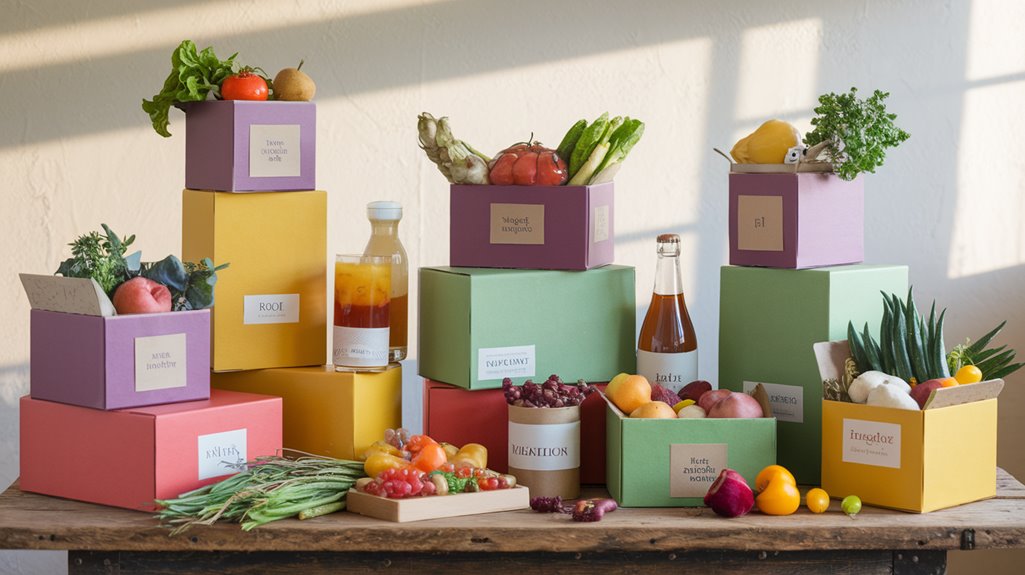
To find cost-effective solutions for food and beverage boxes in the USA, start by evaluating your current packaging costs. Identify what's draining your budget, especially shipping. Next, select eco-friendly materials like biodegradable options, and optimize your packaging sizes to reduce waste. Don't forget to negotiate better agreements with suppliers and explore group purchasing for discounts. Finally, stay informed on the latest packaging trends to keep your products appealing and efficient. Implementing these strategies can substantially lower your expenses while improving sustainability. There's more to uncover that could further boost your business's packaging efficiency.
Main Points
- Utilize eco-friendly, lightweight materials to reduce shipping costs while appealing to environmentally conscious consumers.
- Optimize box sizes to fit products snugly, minimizing excess fillers and reducing material waste.
- Explore bulk purchasing agreements with suppliers to secure discounts and lower overall packaging expenses.
- Implement reusable packaging solutions to decrease long-term costs and enhance sustainability efforts.
- Stay updated on industry trends to incorporate innovative packaging designs that improve efficiency and consumer engagement.
Evaluate Current Packaging Costs
When you evaluate your current packaging costs, it's essential to gather detailed data on every expense involved, from material prices to labor and transportation fees.
Identifying the largest contributors, like shipping costs, helps you reduce costs effectively.
Select Appropriate Materials
Selecting appropriate materials for food and beverage boxes is essential for both cost efficiency and consumer appeal.
By choosing eco-friendly options like recyclable paper or biodegradable materials, you can reduce shipping costs and enhance your brand image.
Consider the packaging design to minimize dimensional weight and explore bulk purchasing discounts to lower your overall expenses while reducing environmental impact with thoughtful packaging materials.
Reduce Packaging Waste
Optimizing your packaging strategy not only involves choosing the right materials but also focusing on waste reduction.
To reduce packaging waste, optimize packaging sizes to fit products, eliminating unnecessary fillers.
Consider shifting to biodegradable materials and engaging in recycling programs.
Implementing reusable packaging can enhance cost-effective packaging solutions and decrease shipping costs, in the end benefiting both your business and the environment.
Negotiate Supplier Agreements
Negotiating supplier agreements is essential for securing the best prices and terms for your food and beverage packaging.
By conducting market research and leveraging your purchasing power, you can reduce costs.
Consider group purchasing agreements to save on shipping costs and collaborate with others in your business.
Regularly review supplier performance to guarantee you're minimizing packaging expenses within your supply chain.
Stay Informed on Trends
How can staying informed about packaging trends benefit your business?
By exploring cost-effective packaging options, you can reduce shipping and packaging costs without compromising quality.
Embrace biodegradable materials and lightweight packaging to enhance the customer experience while achieving significant cost savings.
Incorporating smart packaging with real-time information can further engage consumers, ensuring your products stand out in a competitive marketplace.
Conclusion
To summarize, by evaluating your current packaging costs, selecting the right materials, reducing waste, negotiating supplier agreements, and staying updated on industry trends, you can create cost-effective food and beverage boxes. These strategies not only save you money but also enhance your brand's sustainability efforts. As you implement these solutions, you'll find a balance between quality and affordability, eventually improving your bottom line and satisfying your customers. So, start making those changes today!

